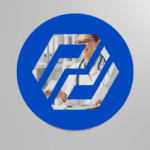There has been a lot of talk about the impact of blockchain in different industries —music, fashion, real estate, and so on. But there is one often overlooked field in which blockchain holds significant promise: the healthcare sector.
Blockchain is changing every single aspect of our lives, including the way we engage with physicians, doctors, and pharmacies. Its decentralization features have a positive impact on patient experience.
Let’s take a closer look at some of the ways blockchain can transform the healthcare experience.
Decentralized medical records
Right now, both patients and healthcare providers are faced with several pain points when it comes to keeping medical records.
For instance, not all facilities are connected. A person may have incomplete medical records in different hospitals or doctor’s offices. And those records are not integrated into one. This causes major gaps in the medical history of a patient and leaves doctors in the dark. Also, in most cases, patients don’t have control over their own data. Therefore, they cannot share them with their new physicians.
With blockchain-based solutions, such as Ever, patients get control of their personal health records. Hospitals and other healthcare institutions can exchange data in a way that is secure, transparent, and privacy-preserving.
Chronicled is another promising solution in terms of secure data exchange among the different members of the healthcare industry. With a privacy-first design, Chronicled uses blockchain technology to enable the interoperability of health information systems across organizations. It also promotes more efficient delivery of healthcare experiences for patients.
Patient consent and protection of healthcare data
Blockchain can help solve some of the issues posed by the need for express patient consent. This technology can enable a transparent, auditable, and secure way for individuals to allow other parties to access their personal health data using their unique credentials and keys.
And there have been great advancements in this regard. In fact, a research team at the University of Malta has created a blockchain-based solution called Dwarna to enable dynamic consent in the field of biobanking. The purpose of dynamic consent is to keep individuals informed about their consent choices and to grant them control over how their biospecimens and data are used in the research process.
Supply chain management for healthcare
The current healthcare supply chain is extremely complex and long. After drugs are manufactured, they are transferred to wholesale distributors, which in turn sell them to retail companies where patients can finally purchase the medication they so badly need.
In the middle of that never-ending supply chain, there are many verification points and procedures to ensure that drugs are authentic and meet all the required standards. But still, some counterfeited drugs still make it to the market, which poses serious risks for patients.
With the help of blockchain and its immutable nature, the healthcare industry can solve many of the issues that threaten its supply chain. For instance, it can provide enhanced traceability to track counterfeit drugs and prevent them from reaching the market.
The Specialized Inspection Agency of Tuv Province and the Government of Mongolia, for example, launched a project to eliminate fake drugs from the market with blockchain and AI. It seeks to increase safety and transparency by tracing the pharmaceutical supply chain.
Streamlined contract management
The healthcare industry is a complex one. There are many sensitive issues involved in each process, as well as strict standards and requirements that need to be met. It can all be extremely cumbersome.
Blockchain technology can help alleviate a bit of the burden placed on most of the players of this sector by providing for streamlined processes, negotiations, and contract management.
HealthVerity, for example, has developed a blockchain-powered platform for simplified contract management between pharmaceutical manufacturers, pharmacies, hospitals, and other healthcare institutions. This secure and compliance-driven solution seeks to streamline negotiations and processes to foster collaboration and cost savings across all parties.
Blockchain in the Health Industry
The potential of blockchain knows no limits. Yes, it can help us carry out secure transactions in the financial arena and establish more direct relationships with fans and followers in the music and art industries.
But it can also help save lives.
Blockchain can disrupt the healthcare sector by providing more transparency and traceability, enhancing the patient experience, and streamlining complex processes. Also, with its decentralized nature and security features, it can bring a little peace of mind to people going through a difficult time in terms of health, proving once again that its value goes way beyond mainstream applications.
About Peerplays
We are dedicated to empowering people’s freedom to create greater outcomes, giving them control over how they own and collaborate worldwide. The core foundation for Peerplays success in 2023 relies primarily on the release and promotion of mechanisms incorporating decentralized ID, gamification, and ‘handshake’ like onboarding that is easily accessible to people who use smartphones. At Peerplays, we are on a mission to revolutionize the world of blockchain technology and empower individuals with the freedom to take control of their digital lives. To achieve this ambitious goal, we are constantly on the lookout for the most talented individuals who share our passion for innovation and our commitment to decentralization. If you believe in the transformative potential of blockchain technology and are eager to contribute your skills and expertise to this groundbreaking project, we want to hear from you.




